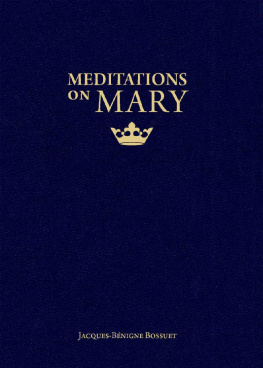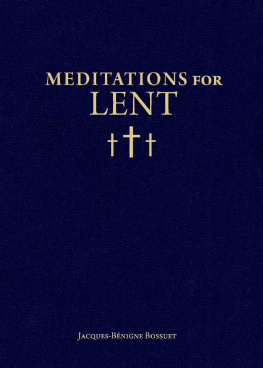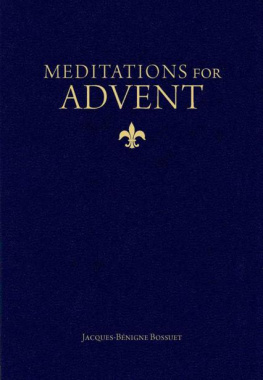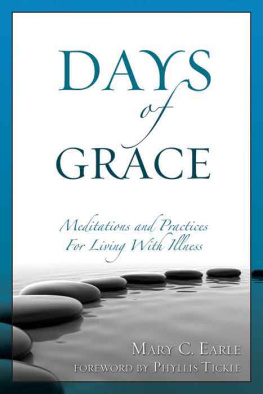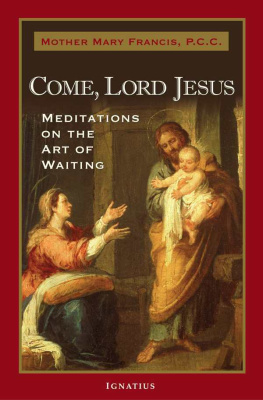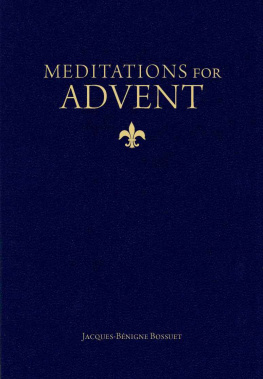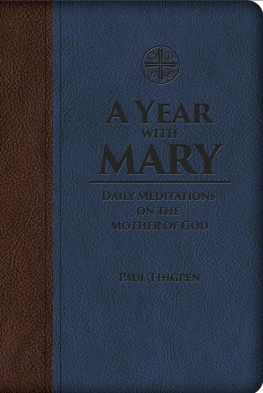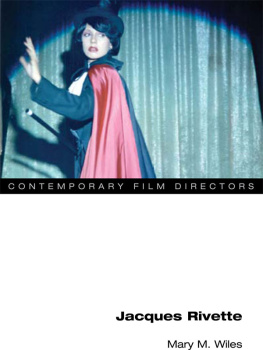Jacques-Bénigne Bossuet - Meditations on Mary
Here you can read online Jacques-Bénigne Bossuet - Meditations on Mary full text of the book (entire story) in english for free. Download pdf and epub, get meaning, cover and reviews about this ebook. year: 2015, publisher: Sophia Institute Press, genre: Religion. Description of the work, (preface) as well as reviews are available. Best literature library LitArk.com created for fans of good reading and offers a wide selection of genres:
Romance novel
Science fiction
Adventure
Detective
Science
History
Home and family
Prose
Art
Politics
Computer
Non-fiction
Religion
Business
Children
Humor
Choose a favorite category and find really read worthwhile books. Enjoy immersion in the world of imagination, feel the emotions of the characters or learn something new for yourself, make an fascinating discovery.
- Book:Meditations on Mary
- Author:
- Publisher:Sophia Institute Press
- Genre:
- Year:2015
- Rating:5 / 5
- Favourites:Add to favourites
- Your mark:
- 100
- 1
- 2
- 3
- 4
- 5
Meditations on Mary: summary, description and annotation
We offer to read an annotation, description, summary or preface (depends on what the author of the book "Meditations on Mary" wrote himself). If you haven't found the necessary information about the book — write in the comments, we will try to find it.
Meditations on Mary — read online for free the complete book (whole text) full work
Below is the text of the book, divided by pages. System saving the place of the last page read, allows you to conveniently read the book "Meditations on Mary" online for free, without having to search again every time where you left off. Put a bookmark, and you can go to the page where you finished reading at any time.
Font size:
Interval:
Bookmark:
Jacques-Bnigne Bossuet
Meditations on Mary
Edited and translated
by Christopher O. Blum
SOPHIA INSTITUTE PRESS
Manchester, New Hampshire
Copyright 2015 by Christopher O. Blum
Meditations on Mary is a selection and translation of the Scriptural meditations and sermons of Jacques-Bnigne Bossuet (16271704), as found in these editions of the French: lvations Dieu sur tous les mystres de la religion chrtienne , in Oeuvres compltes de Bossuet , edited by Abb Guillaume (Lyon: Briday, 1879), and Oeuvres Oratoires de Bossuet , dition critique de labb J. Lebarq, revue et augmente par Ch. Urbain et E. Levesque, 7 volumes (Paris: Descle de Brouwer, 19141926).
Printed in the United States of America. All rights reserved.
Cover design by Perceptions Design Studio.
Unless otherwise noted, biblical references are taken from the Catholic Edition of the Revised Standard Version of the Bible, copyright 1965, 1966 by the Division of Christian Education of the National Council of the Churches of Christ in the United States of America. Used by permission. All rights reserved.
No part of this book may be reproduced, stored in a retrieval system, or transmitted in any form, or by any means, electronic, mechanical, photocopying, or otherwise, without the prior written permission of the publisher, except by a reviewer, who may quote brief passages in a review.
Sophia Institute Press
Box 5284, Manchester, NH 03108
1-800-888-9344
www.SophiaInstitute.com
Sophia Institute Press is a registered trademark of Sophia Institute.
Library of Congress Cataloging-in-Publication Data
Bossuet, Jacques Bnigne, 1627-1704.
[Works. Selections. English. 2015]
Meditations on Mary / Jacques-Benigne Bossuet ; edited and translated by Christopher O. Blum.
pages cm
ISBN 978-1-62282-307-9 (pbk. : alk. paper) ePub ISBN 978-1-622823-086
1. Mary, Blessed Virgin, Saint Meditations. 2. Mary, Blessed Virgin, Saint Biography. I. Blum, Christopher Olaf, 1969- translator. II. Title.
BT603.B6713 2015
232.91 dc23
2015026390
Contents
The True Eve
We marvel as we read the extraordinary words used by the Fathers of the Church when speaking of the most holy Virgin. From St. Irenaeus: Condemned to death by a virgin, the human race was saved by a Virgin. Tertullian: What was led astray into perdition by this sex was restored to salvation by this sex. And the incomparable Augustine: By a woman, death; by a woman, life. By Eve, ruin; by Mary, salvation.
We must not think that such faithful servants of Jesus Christ wanted to lessen the honor due to their Master by associating Mary with him in this way. Truly, we misunderstand God if we think that his glory would be diminished by being shared with his creatures. God is not like us: in giving away a part, he retains the whole. If this seems strange, consider that God is the only one who can give without loss. He does not act as we do, for we divide our cares among many so that the burden on each may be less. It is not so with the living God. When he joins his creatures to his work, it is not to unburden himself, but to honor them, and so all of the glory remains his. When the Fathers taught us that Mary was associated in a singular way with the great work of the Son of God, they in no way diminished the Saviors glory.
To understand why it was fitting for the Blessed Virgin to have had such a role in the work of our salvation, we must look back to the origin of all things. There we see just how considerate God is: in the work of regenerating our nature, he employed all that had once contributed to its ruin. It is certain that God could have delivered mankind without becoming a man. Yet it pleased him to redeem us by becoming a man so that the same nature that had been enslaved by the demon could win the victory over him and his overbold companions. Even when the Son of God had resolved to come to earth and to clothe himself in human flesh, he could have made himself a body and a soul without the assistance of his creatures and thus been spared the shame of belonging to a criminal line. Nevertheless, his incomprehensible providence disposed otherwise. It pleased him that grace and blessing should find its origin in this accursed race. Our Lord wanted to be the son of Adam so that his blessed birth would forever sanctify the race that had been infected by sin.
Since both man and woman participated in the despoiling of our nature, they would also participate in its restoration. If the corruption of sin had dishonored both sexes, it was necessary that the Redeemer of man should honor them both. That is why, as St. Augustine tells us, Jesus Christ, a man, was born of a woman. And because mankind was cast into eternal damnation by a man and a woman, it was fitting that God should have predestined a new Eve as well as a new Adam, so as to replace the old line that had been condemned with a new line sanctified by grace. We may, therefore, conclude that just as the first Eve was the mother of all those condemned to die, so the new Eve, Mary, is the mother of all the living that is, the faithful.
Let us compare Eve and Mary. The work of our corruption began with Eve; the work of our regeneration began with Mary. An angel of darkness spoke to Eve; an angel of light spoke to Mary. The angel of darkness wished to raise Eve to the false dignity of pretending to be divine, saying to her, You will be like God (Gen. 3:5). The angel of light identified Marys true dignity as her friendship with God, saying, The Lord is with you (Luke 1:28). The angel of darkness, speaking to Eve, sought to incite her to rebellion: Did God say, You shall not eat of any tree of the garden? (Gen. 3:1). The angel of light, speaking to Mary, persuaded her to be obedient: Do not be afraid, Mary.... [W]ith God, nothing will be impossible (Luke 1:30, 37). The word of death was spoken to Eve, the word of life to the Blessed Virgin. Eve believed the serpent, Mary the angel. Thus, as Tertullian said, A pious faith erased the fault of an audacious credulity, and Mary repaired by her belief in God what Eve had ruined by believing the devil. Eve, led astray by the demon, was forced to flee the presence of God, whereas Mary, instructed by the angel, was made worthy to bear God, so that, as the holy martyr Irenaeus said, The Virgin Mary became the advocate for the virgin Eve.
It cannot be doubted that Mary was the Eve of the new covenant and consequently the Mother of a new people. And Mary will be your Mother, if you live in our Lord Jesus Christ. She will be Eve that is, in the Hebrew tongue, the living one. Adam gave this name to his wife because she was the mother of all the living. Yet it is not Eve who is the mother of all the living; she is, rather, the mother of those who will die. In fact, the first Eve received her name as a prefigurement of the Blessed Virgin, whose dignity she represents. The Blessed Virgin is the true Eve, the true Mother of all the living. Live, then, and Mary will be your Mother. But live in and through Jesus, because Mary herself has no life except in and through Jesus.
Dispensed from the Law of Death
A universal law of death has been declared. Would its authority be undermined if a dispensation from it were to be made? St. Paul assures us that one mans trespass led to condemnation for all (Rom. 5:18). He had in view the authority of the law, which in itself extends universally, but he did not deny the sovereigns power to grant dispensations. By virtue of the laws authority, Mary was condemned with the rest of the human race. Yet by the sovereigns grace and power, a dispensation was made in her favor.
A dispensation must have three characteristics if the sacred majesty of the law is to be preserved: its recipient must be eminently worthy, it must be founded on precedent, and it must enhance the sovereigns glory. Should all three of these features be found together, it would be reasonable to expect a dispensation. Let us consider them in the case of the Blessed Virgin.
Next pageFont size:
Interval:
Bookmark:
Similar books «Meditations on Mary»
Look at similar books to Meditations on Mary. We have selected literature similar in name and meaning in the hope of providing readers with more options to find new, interesting, not yet read works.
Discussion, reviews of the book Meditations on Mary and just readers' own opinions. Leave your comments, write what you think about the work, its meaning or the main characters. Specify what exactly you liked and what you didn't like, and why you think so.

